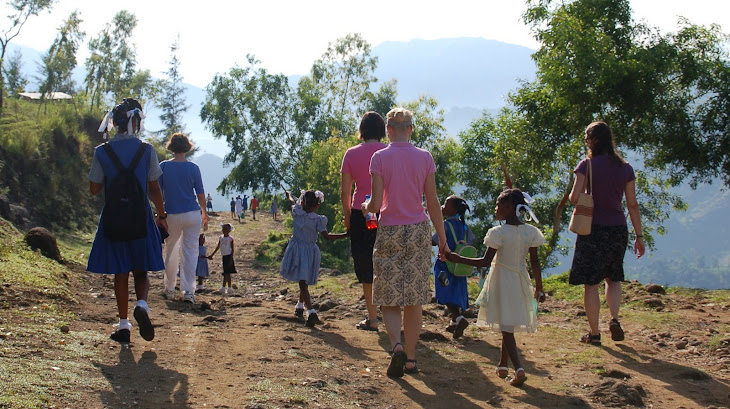And some kind of help is the kind of help
That helping’s all about.
And some kind of help is the kind of help
We all can do without.
-- Shel Silverstein, “Helping”
The world has rushed to help Haiti after the Haitians’ world collapsed. While I’m thankful that Haiti is receiving much-needed support and aid, I worry that it is too much, too late for that devastated nation. I’m concerned about it reaching the right hands in a way that is culturally relevant and beneficial to the incredibly long rebuilding process that the Haitians face.
For too long, more powerful countries have assumed they know what’s best for Haiti. To be sure, their resources have been given in a spirit of harmless generosity. When I visited Lopital (Hospital) Ste Croix in Léogane, we received a tour through the basement of the hospital. The hallways were piled high with cardboard boxes of medical supplies. When we asked our tour guide about them, he laughed. “Those are all of the supplies that the Americans have sent us that we can’t use,” he explained. “Our equipment isn’t sophisticated enough. Our landfills are overflowing, so we stack the boxes here. I wish Americans would ask us what we need.”
It’s not only nations, but also individuals. A Mississippi senator believes we should send FEMA trailers to Port-au-Prince. Really? What about the health problems they caused in New Orleans, where someone nicknamed them “toxic tin cans”? Other Americans, untrained in disaster relief, are hoping to rush off to Haiti, not realizing that their presence will draw important resources like food and water away from the people who need them most.
I don’t pretend to have any answers to the Haitian disaster. The solutions to Haiti’s problems are incredibly complicated and will require a long-term commitment to create political infrastructure, develop health care, protect the environment, produce food, offer jobs, educate children, rebuild houses and roads, and heal their broken lives.
The Haitian people are incredibly resilient and resourceful. Most have abiding faith in God’s provision and goodness, despite the odds. One of their common phrases is degaje, which means making do with what you have. When it comes to creating something out of nothing, the Haitians are experts. We need to listen to them -- their needs, abilities, aspirations, and ideas. If substantial foreign aid combined with good listening and political empowerment over the long haul, the Haitians could know a brighter future.
In the meantime, however, there is much work to be done. The suffering continues. We can pray, listen, and give our resources. We can commit to walking this entire road to Haiti's recovery. And most of all, we can promise to offer the kind of help that helping is all about.
Trustworthy places to give support:
Family Health Ministries
United Methodist Committee on Relief
Red Cross








No comments:
Post a Comment